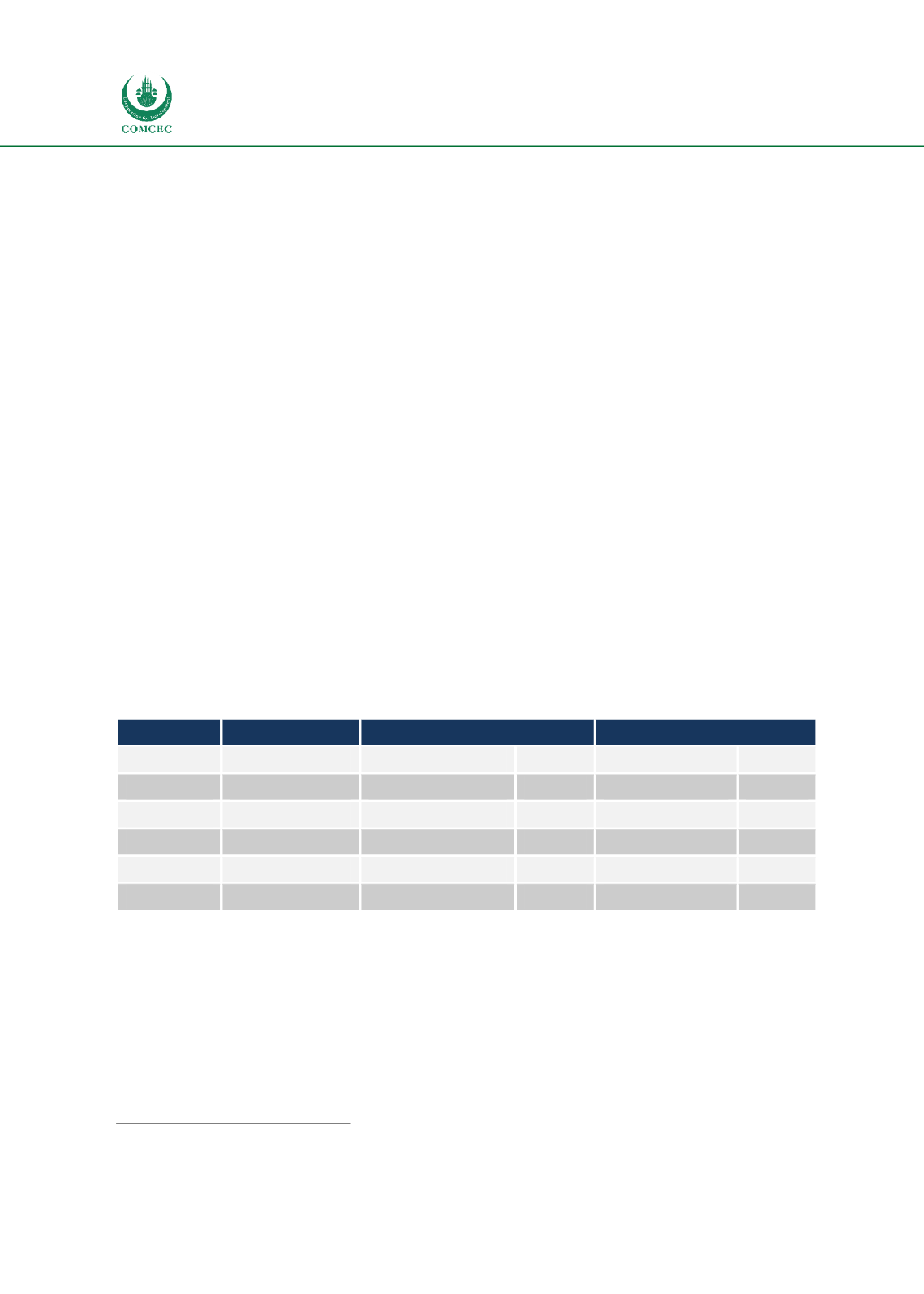

Facilitating Trade:
Improving Customs Risk Management Systems
In the OIC Member States
114
5.2
CRM in Customs Service of Senegal (CSS)
Senegal is located in the westernmost part of Africa, at the crossroads of trade routes linking
Western Africa, Europe, North and South America and West Sub-Saharan Africa. The Port of
Dakar is a trade hub open for commercial traffic since 1865. Port of Dakar is one of the biggest
deep-water seaports in the West African coast, ranking fifth in cargo volume after Richards-Bay,
Durban, Lagos, and Abidjan. Senegal customs is managing 24 BCPs, one seaport, one
international airport and 22 road BCPs.
Customs Administration in Senegal was established in 1819, after the 1962 outbreak of the
Federation of Mali, the Senegalese Customs Administration was reorganized as the Customs
Service of Senegal.
Senegal is a member of the ECOWAS Customs Union programme that is concerned with the
implementation of the ECOWAS Common External Tariff effective and the promotion of the
economic integration among its member states.
5.2.1
Various Aspects of Risk Management Implementation in Senegalese Customs
5.2.1.1
Evolution of CRM in CSS
Senegal is a typical example of an African country relaying for over ten years on external
companies assessing the risk management on their behalf. Since 2010, the CSS has been moving
the CRM functionalities back into central customs services. The CSS shows improvements in
building general organizational capabilities and IT, with a focus on developing appropriate IT
tools to support CRM.
In 1990, the Senegalese Customs implemented a GAINDE Integral CDPS to process the customs
declaration, collection, and payment of customs duties and taxes. The GAINDE Integral CDPS
didn’t support CRM functionalities.
Table 32: SCS Customs Declaration grouped by mode of transport
Number of BCPs
2015
2016
Mode
Number of CD Percent
Number of CD Percent
Air
1
42,909
18.31%
43,415
18.86%
Sea
1
123,681
52.77%
119,758
52.02%
Road
22
67,622
28.85%
66,959
29.08%
Train
168
0.07%
104
0.05%
Total
24
234,380
100%
230,236
100%
Source: Senegal Customs Service
Customs Risk Management in Senegalese Customs started in 2001, with the implementation of
the Import Verification Program (PVI). The PVI contract determines the customs value of goods
imported in Senegal. At the beginning of 2002, the MoF signed a new contract with COTECNA
for supply and valuation database development, as well to further assist the Customs in the
physical control of goods during import and export procedures.
Risk management in the CSS began with the fourth contract – Import Verification Program (PVI)
- signed with the COTECNA Inspections
69
. COTECNA had been requested in 2001 to develop a
69
http://www.cotecna.com/















